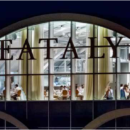
WE ARE ADMINISTRATING WEALTH
Long before the term “privacy” provided jobs for an army of lawyers across the globe, some wealthy people were asking others to take care of their money. And, if possible, to multiply it. Before the Second World War, this activity got a name: private banking. In that time, as in many other times in its history and against her will, Romania was busy with other things. So, after several decades of shade, wealth management in Romania is making steps forward to catch up with the level of services and standards in developed markets: professional, dedicated and expanded.
Deposits, shares, derivatives, structured products in Euros, USD, lei, “plain vanilla” or “umbrella” … many terms, many choices. The multitude of options makes the choice difficult. Paradoxically, Romania seems to have an advantage from the fact that the options are even fewer, the choice is easier.
Most banks in Romania administering fortunes are doing it, from a certain level up together with its parent bank. “The portfolio of the products investment will be built starting from the conservative savings bonds and sovereign bonds, to which medium and high risk products will be added. The access to international markets is correlated with the international representation of the major shareholder Turkiye Garanti Bankasi who is present in key areas of Europe and is a very powerful player of the banking market in Turkey,” says Ana -Maria Pochi, Private Banking Manager at Garanti Bank.
Investment products are developed together with the parent bank by ING or UniCredit Tiriac Bank. “To offer wealth management we are working together with our colleagues at ING Luxembourg, an institution with over 50 years experience. We are using the same technical platform where any type of financial instruments can be traded. Through ING Luxembourg investments in gold can be placed, including the physical version,” says Octavia Cutuș, Director Wealth Management Division at ING. In 2012, the bank launched a new set of products – “structured notes”. They can be built on any underlying asset starting with gold and exchange rates, to mixes of shares, stock exchange indices and commodity quotes. The first products offered had as underlying the exchange rate, but this year the bank will have other sophisticated options available. Besides the already traditional products, such as treasury bills – which gave fairly good yields in 2013 compared to other instruments with similar degree of risk – ING has an excellent credit card choice: the bank’s wealth management clients have access to a card which is one of the most valuable in the world with complex facilities to merchants, hotels and airports, including permanent assistance for medical emergencies and protection.
Raiffeisen Bank does not provide private banking services, but provides banking services to high net worth customers through Friedrich Wilhelm Raiffeisen. Mihail Ion, Chairman of the Investment Committee of Raiffeisen Bank for high wealth customers says that one of the most common expectations of these clients is financial advice. “Our clients have access to investment instruments and asset classes from the most conservative to the most dynamic such as: classic and structured deposits, corporate and sovereign bonds and investment funds based on interest-bearing instruments, capital protected funds, equity diversified funds, structured notes with full or partial capital protection, certificates, equities, commodities. Products listed offers exposure both locally and in developed markets (U.S., Europe, Japan) and emerging (Eastern Europe, Asia, Latin America), in any currency, provided through our various Raiffeisen Group branches or issued by large international financial groups” explains Mihail Ion.
Another bank, another approach. Bancpost feels that is a good time to purchase real estate. “Setting up a portfolio account with a moderate profile is easily achieved through purchasing government bonds, money market funds and bank deposits or bonds with variable terms, in proportions decided by the client. Of course for a more pronounced long-term growth such accounts should be seasoned with a package of shares or real estate properties” points out Daniel Stifter, Director of Investment Products Bancpost.
But is the moderate portfolio what the Romanian client is seeking? And what is the profile of the Romanian client of private banking? He differs from his Western counterpart by two things: the entry level on the private banking services and the financial education. Thus, in developed markets a client benefits from private banking starting with 1 million euros or more in Romania the average threshold is around 200 – 250,000 euros. A brief profile of the client is given by BRD: male, 45 years old, educated, income over 100,000 euros per year and assets exceeding 500,000 euros. How many Romanians fall into this pattern? Enough, I would say, or enough to represent more than 1,000 private banking clients of BRD. And to this we add the minimum amount that a customer can have access to this type of service: 100,000 euros. That’s where BRD sets its threshold, while other banks set the threshold above or below. Meanwhile, ING has set the minimum amount to 400,000 euros, Bancpost considers eligible for private banking services, a customer with a consolidated portfolio of at least 30,000 euro. According Octavia Cutuș from ING, the bank has a rigorous selection process for its customers, taking into account aspects other than financial ones, such as the source of funds and even the client’s profession. ING Wealth Management already manages more than 350 million, for approximately 250 clients, with accounts higher than 400,000 euros in cash or with other financial assets. Friedrich Wilhelm Raiffeisen sets a minimum threshold of 250,000 euros on financial assets.
Bancpost, on the other hand, wants to provide this service to those with lower incomes. “We mainly address a wider mass of clients to whom we promote our private and personal banking services. We are seeking that at least 30 % of our customers with significant amounts receive the facilities of this service” says Daniel Stifter. Florentina Predescu said BRD is usually looking for clients with financial potential such as shareholders of companies with a significant turnover, top management of multinational companies, top liberal professionals and personalities recognized nationally or internationally. Mihail Ion added to this selection area those who have inherited large sums or regained their possessions confiscated before 1989.
The banking sector in general, felt the effects of the global financial crisis by lowering the incomes available in the market, both for the population and companies. “At national level the decrease of the economic activity affected both individuals and businesses. Reducing demand is generally is reflected in the decline of turnover, liquidities and payment delays, issues that can be seen in statistics related to insolvency in the local market” says Ana-Maria Pochi. For 2014, one thing is certain for the banks: interest on deposits will fall further because of the yields. And that means they will work harder and they will be forced to find investment solutions for the most sophisticated clients.









